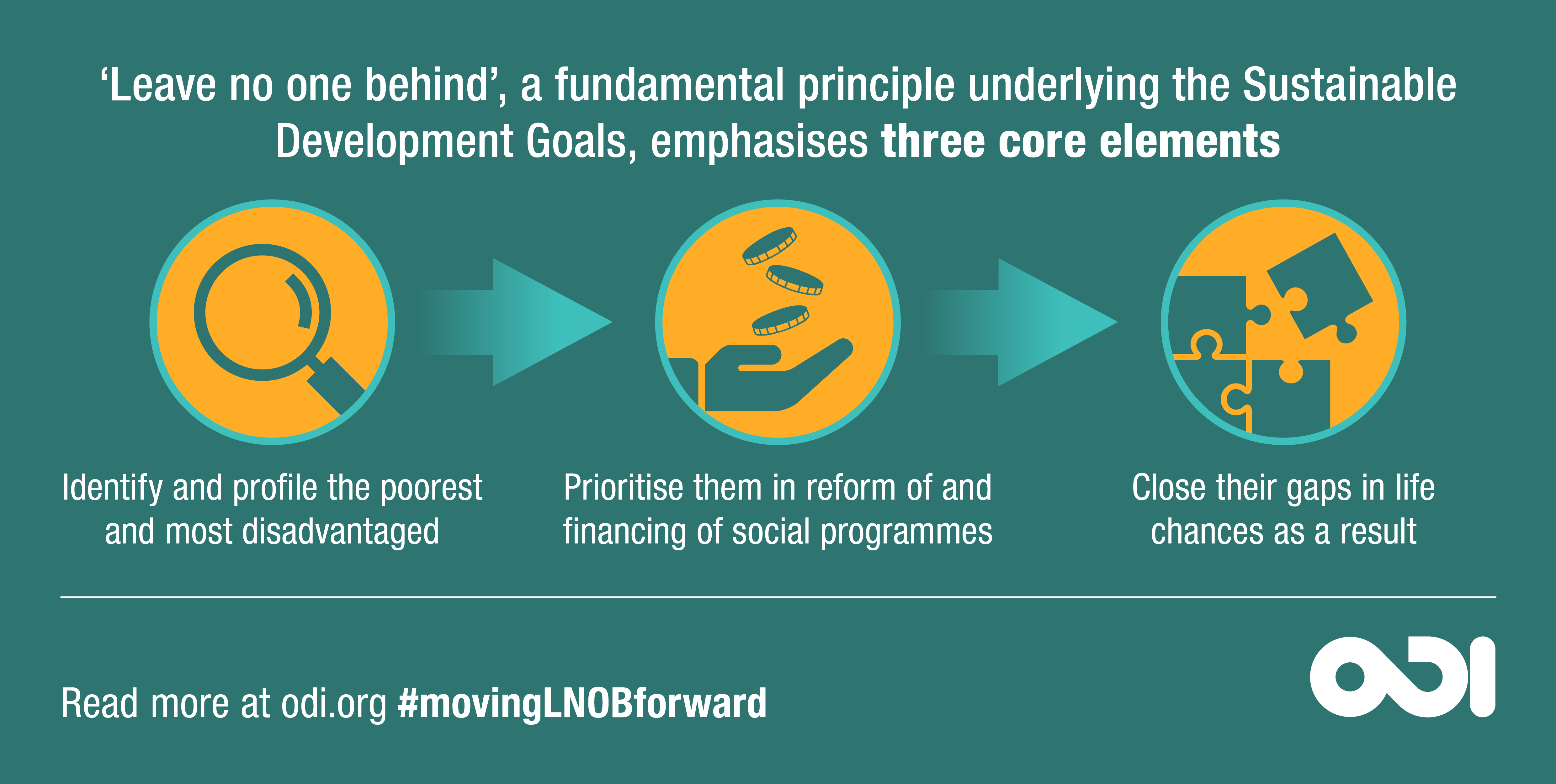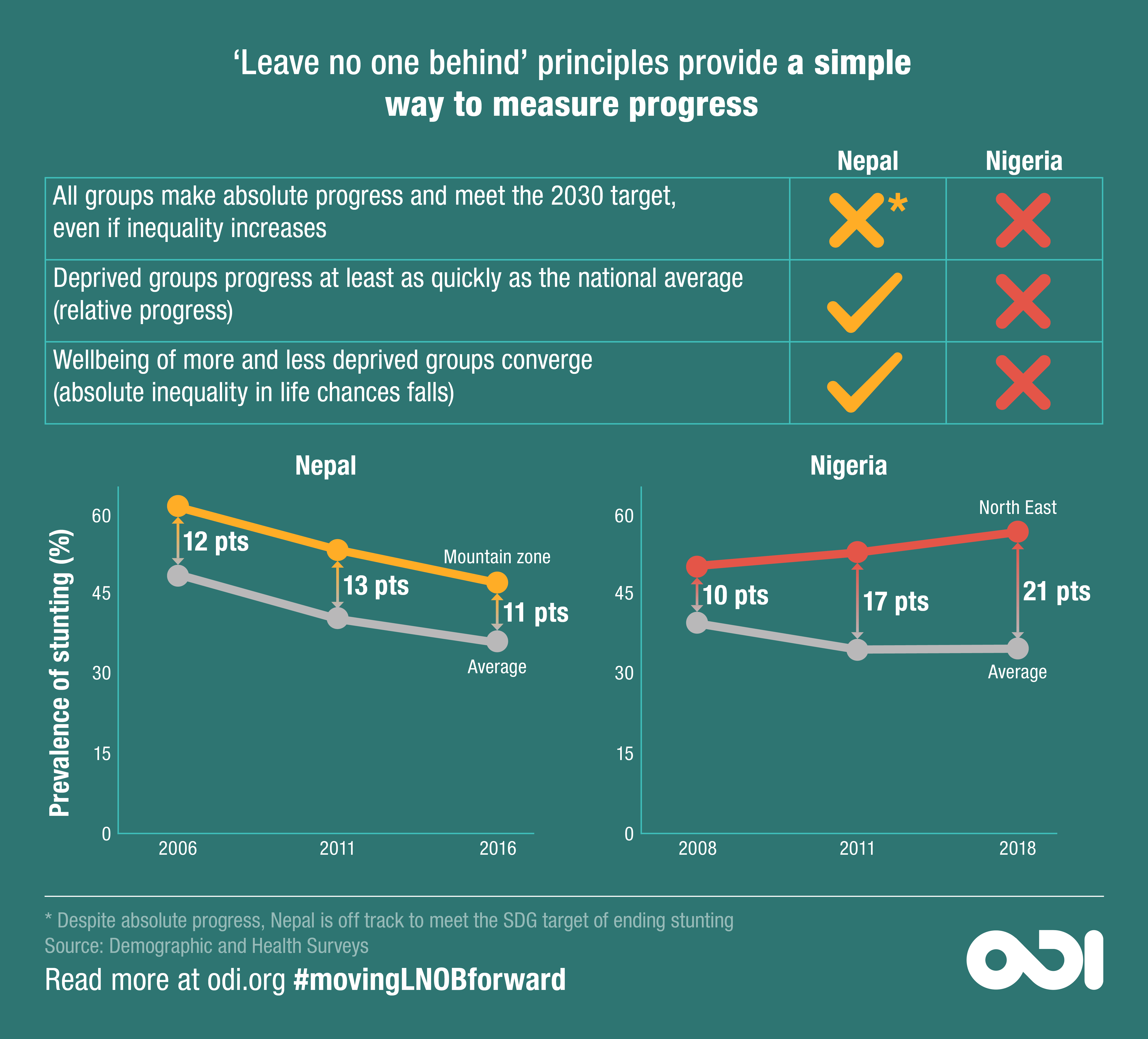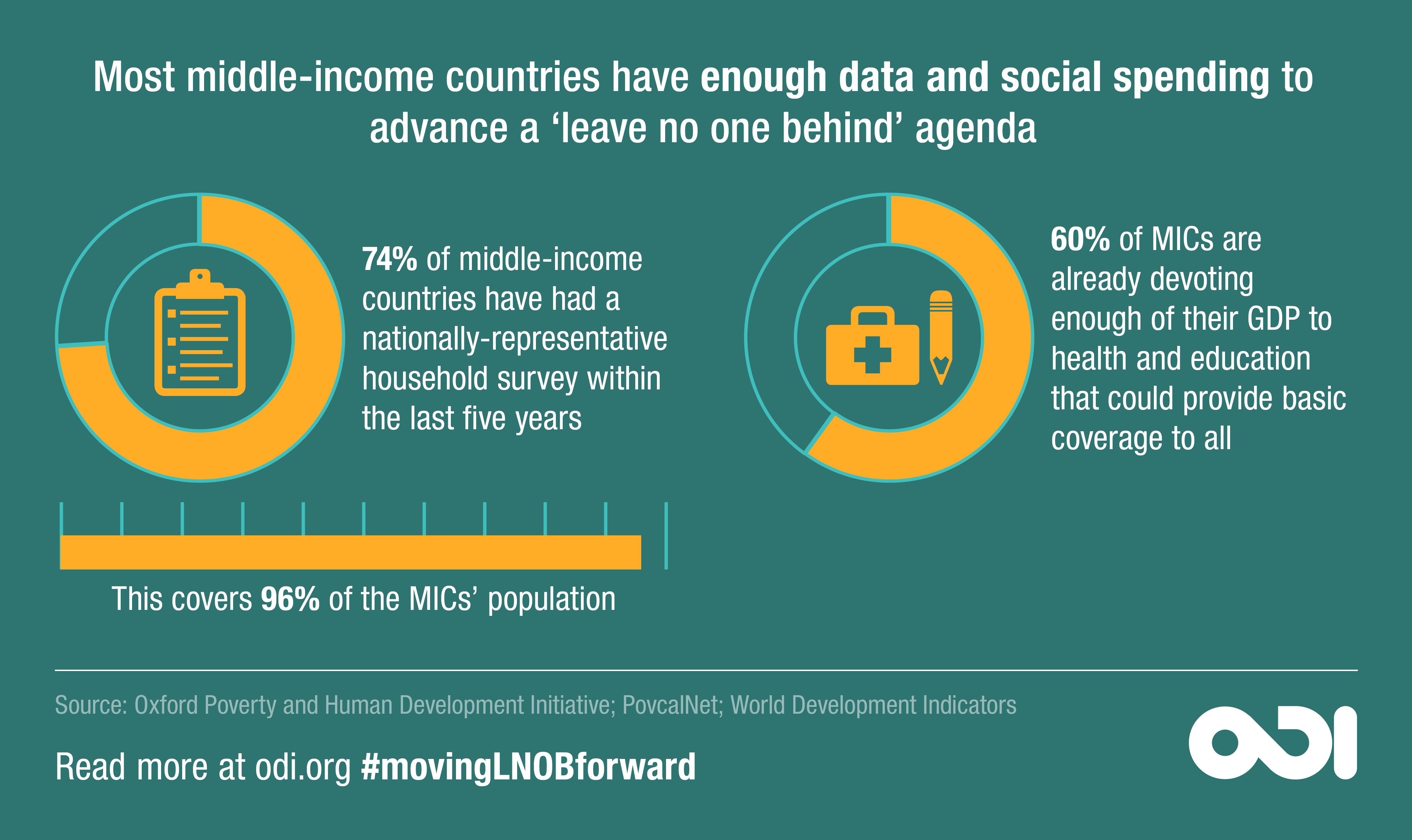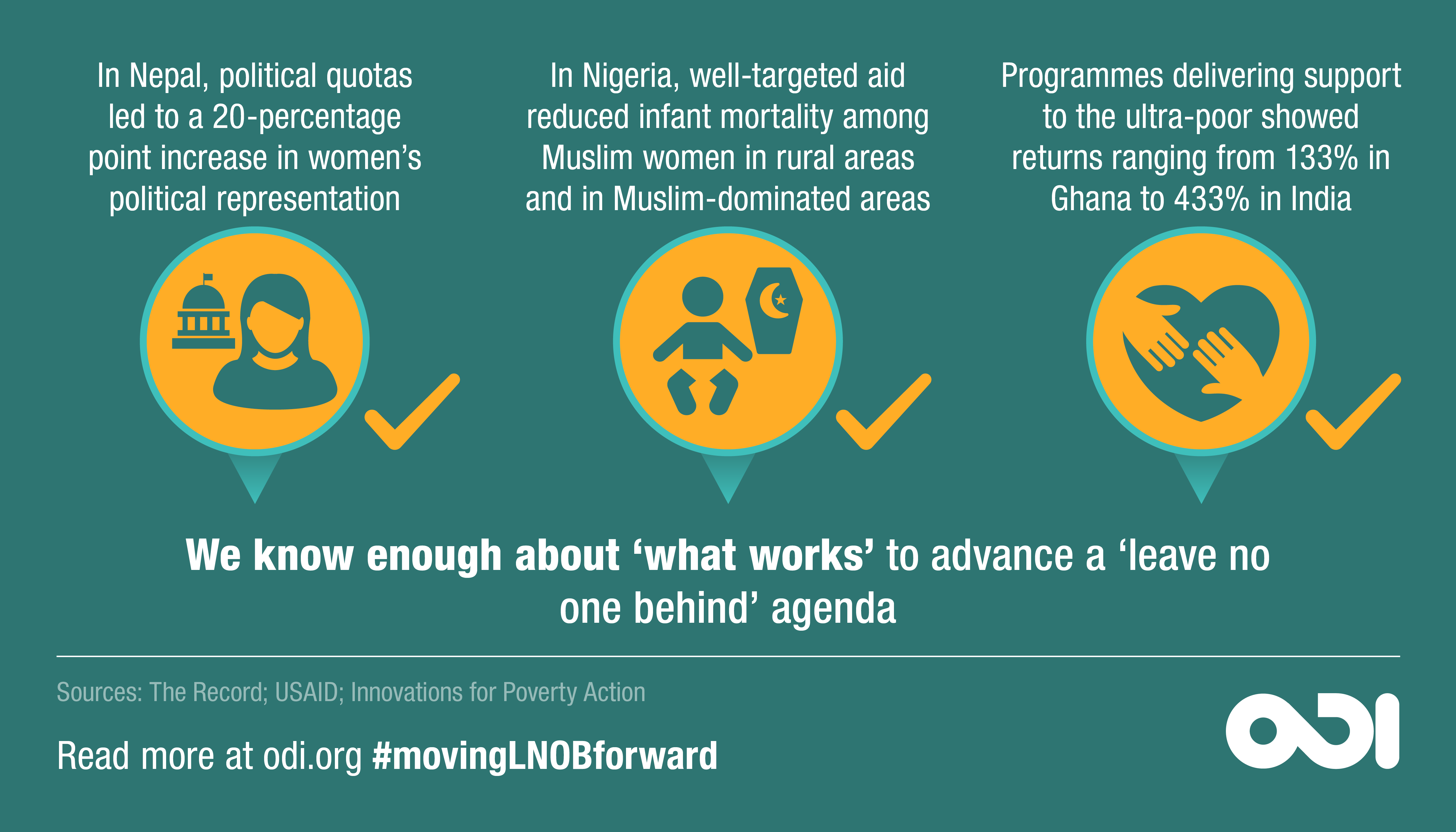The Covid-19 pandemic has stalled global progress on many of the Sustainable Development Goals (SDGs), including ending extreme poverty by 2030. Inequality is rising and hard-won gains in poverty reduction are being reversed, in rich and poor countries alike. The pandemic has also shone new light on long-standing barriers to progress in reducing inequalities – notably the concentration of persisting deprivations in groups who share certain identities (e.g. age, race or ethnicity, having a disability), places of residence (e.g. remote areas) and/or experiences (e.g. forced migration).
The ‘leave no one behind’ (LNOB) agenda rose to prominence as the Millennium Development Goal era closed. It was increasingly recognised that concentrating policy on outcomes defined by national averages concealed disparities affecting the poorest groups. The LNOB focus seeks to redress this failure by making progress for these poorest groups central to the realisation of the SDGs. countries pledged through Agenda 2030 ‘that no one will be left behind ... we wish to see the Goals and targets met for all nations and peoples and for all segments of society. And we will endeavor to reach the furthest behind first’.
This report discusses the interpretation of the principle to date, and how to advance the agenda. It is accompanied by an executive summary and an annex containing technical details and context to the main report.
Authors: Emma Samman, José Manuel Roche, Moizza Binat Sarwar and Martin Evans
Emma Samman, José Manuel Roche, Moizza Binat Sarwar and Martin Evans.
Published online: 21 January 2021. Corrected online: 22 January 2021. The text on pages 14, 28 and 37 of the report was amended to rephrase the three interpretations of the ‘leave no one behind’ agenda.







